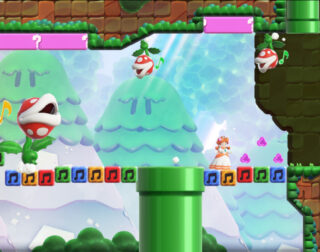Simply put, playing too many video games will not ‘melt your child’s brain’ or will not make your child more ‘aggressive’. Video games can actually be a very beneficial tool in helping your child understand autonomy, reduce stress, and develop their own executive functions such as planning, decision-making, flexible thinking, and even working memory. So, how does it work?
Essentially, video games allow a child to be in the driver’s seat; they are now the sole reason anything should happen in a game. The child has all the decision-making power. Video games, such as role-playing games like Stardew Valley or Animal Crossing, present their player with a unique and interesting problem or task, where a child must choose between different choices to find the best solution, and then find out how to implement their solution (and actually do so).All of this requires extensive executive functioning skills and mimics real-life situations. Being able to practice and develop these skills outside of real-life can be extremely beneficial to children!
Not only do video games improve executive functioning skills, they have also been shown to affect stress in children. According to a study done by Porter and Goolkasian, the video game Mortal Kombat does induce a cardiovascular stress response, which means that the body does respond to the game in a similar way that it responds to stress (at least in the cardiovascular system), but the emotional response to the game way very high! Even though the child may respond physically to the video game in a similar way as they would a stressor, they actually consciously enjoy playing and don’t “feel” stressed.
These results definitely make sense; having an outlet where children can interact with friends and feel accomplished is a great way to de-stress. In this instance, video games are a wonderful method for children to relax and work on something that matters to them and makes them happy. They are able to enjoy seeing friends during a time where that may have been impossible and they are able to work on executive functioning skills that will help them greatly in the long-run (Porter and Goolkasian, 2019).
You may be asking, “so I’m supposed to let my child play video games all night?”, and the answer to that is definitely ‘no’. There are certain caveats and guidelines that should be followed if trying to use video games in a beneficial manner:
– The type of game matters. Your child may want to play all sorts of video games, but some of the more beneficial ones in regards to developing executive functioning skills are role-playing games such as Minecraft, Stardew Valley, Animal Crossing, The Sims etc. However, using games to de-stress is much more individualized; each child may like different games! It is important to note, though, that violent games can have a stress-inducing response in some. Getting to know your child and which game they prefer is key in using video games as de-stressors.
– The duration of play matters. Spending all day playing video games is not going to help your child more than spending only a few hours playing games. Regulating their time spent playing online is important; they should not be allowed to play so much that it affects their daily life and real-life functioning negatively, but a few hours is alright!
– The reason for playing matters. Due to the fact that playing video games can have such a profound effect on stress reduction in children, they often will turn to their favorite game when a stressor comes forward in real-life. Using video games as a form of escapism from their own life is not beneficial or healthy. It allows the child to avoid dealing with their issue. However, playing a video game to have fun, connect with other players and friends, and to enjoy the game itself are all great reasons to play! Parents should encourage their children to play video games only for fun and to deal with real-life stress head-on before turning to the game to avoid escapism developing.
Video games are a huge part of life for many families; simply eradicating them is almost impossible and actually unnecessary and not beneficial. Video games have been shown to improve executive functioning skills and reduce stress in children who play. They are also a great way for children to interact with friends and even family members in a time where real-life interactions may not be possible. It is important to note, though, that video game use should be regulated in some way. Not all games are as beneficial and should be played whenever the child sees fit. Knowing your child and actually communicating with them about their video game play is one of the best ways to effectively regulate their usage. Playing video games, in the right circumstances, is a great way to allow your child to have fun and develop great executive functioning skills along the way!





